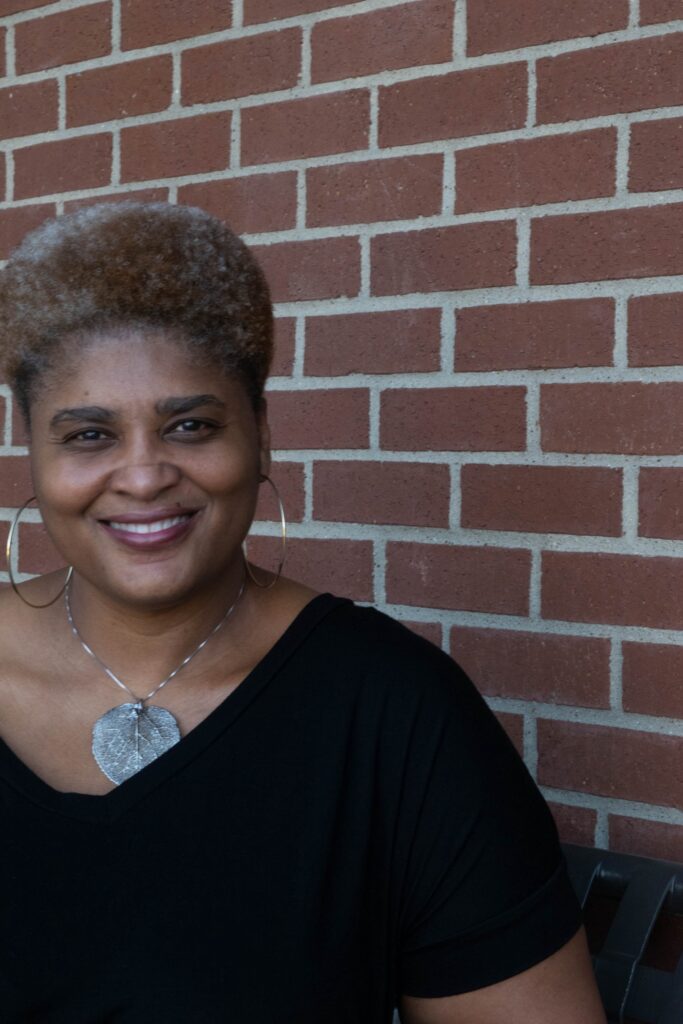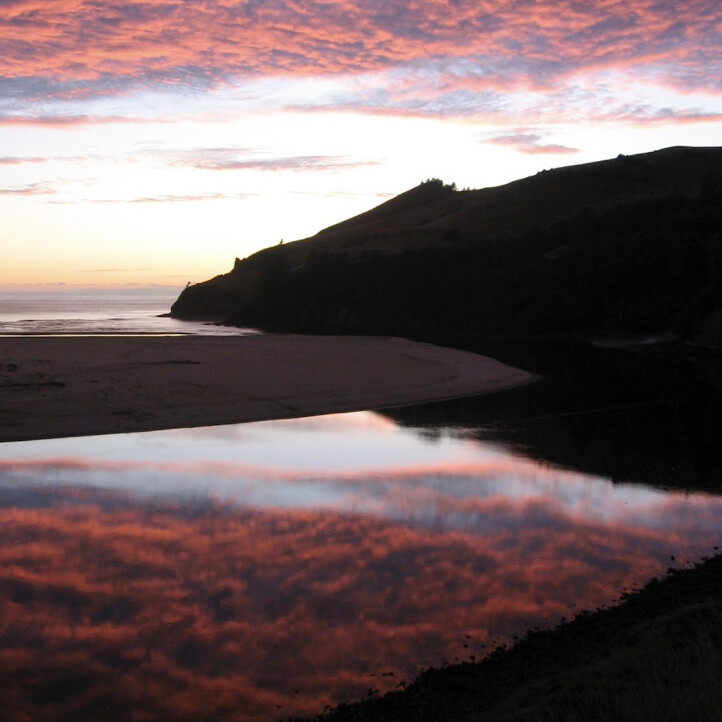Watch your thinking. One of my favorite quotes is “Watch your thoughts, for they become words. Watch your words, for they become actions. Watch your actions, for they become habits.” Everything starts as a thought. Pay attention to what you think about yourself and the situations you face. It can determine your results/outcome.
Resilience has been described as the ability to withstand adversity and bounce back from difficult life events. Times are not easy now. How do we develop greater resilience to withstand the challenges that keep being thrown at us? In this interview series, we are talking to mental health experts, authors, resilience experts, coaches, and business leaders who can talk about how we can develop greater resilience to improve our lives.
As a part of this series, I had the pleasure of interviewing Dr. Froswa’ Booker-Drew.
Froswa’ Booker-Drew, Ph.D. is a Network Weaver who believes relationships are the key to our personal, professional and organizational growth. She has been quoted in Forbes, Ozy, Bustle, Huffington Post, Modern Luxury, and other media outlets, due to an extensive background in leadership, nonprofit management, philanthropy, partnership development, training, and education. Froswa’ graduated with a PhD from Antioch University in Leadership and Change with a focus on social capital, diverse women, change management, and relational leadership. She is the host of the podcast, The Tapestry and author of 3 workbooks for women, Fly Away, Ready for a Revolution: 30 Days to Jolt Your Life and Rules of Engagement: Making Connections Last.
Thank you so much for joining us! Our readers would love to get to know you a bit better. Can you tell us a bit about your backstory?
Iserve as Vice President of Community Affairs for the State Fair of Texas. I am responsible for our philanthropic giving, community initiatives and partnerships and some of our educational programming. I am also the co-founder of HERitage Giving Circle and Power in Action, two amazing organizations focused on giving in the Black community of North Texas. Lastly, I’m an adjunct professor at Tulane University and a research affiliate at Antioch University. I am also an author of three books and finalizing a fourth.
Can you share with us the most interesting story from your career? Can you tell us what lessons or ‘take aways’ you learned from that?
I remember very young in my career having a boss that I looked up to and wanted to emulate. She was brilliant, well-respected, and gifted. I spent a lot of time with her due to the long hours of the position. Our families even spent time with one another. As I began to thrive in the work and began to receive recognition for the work, she changed. I moved from a brainstorming partner to being micromanaged and criticized for everything. Sadly, her superiors even commented on the unfair treatment I received but they did nothing to address the mistreatment. I finally decided to walk away because the toxicity was overwhelming and while others were afraid of her and chose not to cross her, I left on faith to start my own business. I learned several lessons. Sometimes difficult experiences occur to show you what you are made of, but they also can serve as a catalyst to push you from comfort to creating your destiny.
What do you think makes your company stand out? Can you share a story?
I’m fortunate to work for the biggest and best State Fair in the country! The State Fair of Texas in twenty-four days not only has more than 2 million visitors but the event supports my work to providing funding to nonprofits in the local area (so proud of how we are changing the narrative in philanthropy), our signature programming that includes building the capacity of nonprofits and businesses in our area, and supporting initiatives in our area that impact education, social justice, economic development, or nonprofit growth. I don’t think people are aware of the many things we do outside of the event year-round which is unique for the industry. In addition to my work at the State Fair of Texas, I am an author and I speak at a variety of events. I also provide training and consulting to a limited number of organizations. I think what makes my work unique is the decades combined of education and experience that contributes to my ability to understand organizational culture, community development, philanthropy, and DEI.
None of us are able to achieve success without some help along the way. Is there a particular person who you are grateful towards who helped get you to where you are? Can you share a story?
I am forever grateful to my mother. My mother endured a lot of hardships and loss. She instilled in me the importance of an education but also the importance of pursuing your dreams. She has been my biggest cheerleader and when I forget who I am, she reminds of not just what I’ve accomplished but the endless possibilities that exist within me. It’s a gift to have a mother that you adore but one who is also your friend and confidante.
Ok thank you for all that. Now let’s shift to the main focus of this interview. We would like to explore and flesh out the trait of resilience. How would you define resilience? What do you believe are the characteristics or traits of resilient people?
Resilience is the ability to bounce back after difficult situations. I think resilient people are courageous and determined. I think at times, we practice resiliency without necessarily equating our actions with being resilient. For many of us, we do what we must because the situation requires it. In some circumstances, we have limited choices, and we choose to push through it because the other options are either limited or non-existent.
Courage is often likened to resilience. In your opinion how is courage both similar and different to resilience?
I think it is important to note that although resilience requires the ability to push through situations, sometimes, we are pushing through because our choices don’t allow for anything else. Resilience is important but I don’t think we talk enough about trauma and that many of us are pushing through very difficult situations without acknowledging the scars that we’ve endured to get through. I’ve heard resilience compared to a fork being bent out of shape only to resort to its original state. Yet, depending on the intensity of the bend, is the fork ever back to its normal state? I think the same can be said about many of us — we bounce back but the bend is so deeply now a part of our consciousness. We aren’t the same, we’ve just persevered and moved on. Is it really courageous or a commitment to doing something we must do even when it doesn’t feel good?
When you think of resilience, which person comes to mind? Can you explain why you chose that person?
Simone Biles is a person that epitomizes resilience. Here is a young woman who smiled and performed in the midst of a traumatic experience that was ignored and yet, was expected by the public to continue to put her body through such intensity while she struggled both mentally and physically. She decided to step back and take care of herself despite the unsolicited comments from others who knew nothing about what she went through, and she placed her needs first. I think she exemplifies that for many of us, we continue to bounce back despite the need to stop, slow, down and process our pain instead of always pushing through. That’s resilience as well.
Has there ever been a time that someone told you something was impossible, but you did it anyway? Can you share the story with us?
I remember in high school meeting with my guidance counselor to sign up for Latin. She told me that “you people don’t take Latin”. What could have easily served as discouragement, I laughed and told her that I was one of those people who would take Latin. I took Latin in High School and was a few hours from a minor in it in college. I didn’t allow her racism or thoughts about me to stop me from doing something I knew I could do. I also recognize that everyone doesn’t do this. There are so many obstacles and barriers and after repeated blocks, it’s easy to get frustrated, give up and get discouraged. It has nothing to do with weakness. I think we all have our breaking points and it’s imperative to understand that what works for me may not apply for you. We can all learn from one another, but we must be aware that our experiences, upbringing, and other factors can impact our ability to bounce back.
Did you have a time in your life where you had one of your greatest setbacks, but you bounced back from it stronger than ever? Can you share that story with us?
There have been a lot of setbacks. I remember applying to a college that I really wanted to go to, and I didn’t get in or applying for a job that I wanted, and it didn’t work out. Those situations can be devastating. The college that said no actually did me favor. I ultimately attended the University of Texas at Arlington which opened so many doors for me to build my leadership and relational skills. At the time, I thought the ‘no’ was the end of the world but actually became the beginning of something special that changed my life for the best.
How have you cultivated resilience throughout your life? Did you have any experiences growing up that have contributed to building your resiliency? Can you share a story?
In February 2021, in Texas, we experienced Snowmaggedon. I moved in with a friend after the heat in my home dropped down into the 30s due to a loss of electricity. I recognize that other parts of the country are prepared for this type of weather, but we were not since cold weather doesn’t really last very long and we typically have heat when it does. I was so grateful for my friend’s hospitality and even while I was there, I was terrified of the same thing happening at her home and the possibility of moving again. This was difficult at a time when very few people had vaccines and we were still understanding COVID’s impact. After four days of this experience, we all went back to work the following Monday as if nothing happened. Some would call it resilience. I thought it was insane. Part of resilience is the ability to reflect and lament. I’ve learned that many times that we practice resilience are often a result of traumatic experiences. Moving on is expected and yet, we must take the time to process our pain and remember. It’s important to mourn because of what we experienced. That’s a lesson I’ve embraced not just during Snowmaggedon but throughout my life. We need to give ourselves the space to do this which can help us build our resiliency. It’s more than moving on. It’s really about learning and healing, too, as a part of the process.
Resilience is like a muscle that can be strengthened. In your opinion, what are 5 steps that someone can take to become more resilient? Please share a story or an example for each.
- Create the space to reflect from the lessons. Processing is important. Otherwise, it isn’t resilience anymore. It’s doing the same thing over and over without learning.
- You need a support system that reminds you of who you are. In the midst of challenges, it’s easy to have a warped sense of who you are. Having folks remind you of what’s in you is necessary.
- Bet on you. Challenges will come. Trauma isn’t always avoidable but what you can do is make sure that you always believe in yourself and your abilities.
- Recognize the traumas that you endure. I think as a society, we are so determined to move through situations and just as muscles need time for recovery to be stronger, you must know when to pause or even stop to heal before moving forward.
- Watch your thinking. One of my favorite quotes is “Watch your thoughts, for they become words. Watch your words, for they become actions. Watch your actions, for they become habits.” Everything starts as a thought. Pay attention to what you think about yourself and the situations you face. It can determine your results/outcome.
You are a person of great influence. If you could inspire a movement that would bring the most amount of good to the most amount of people, what would that be? You never know what your idea can trigger. 🙂
I would love to help people understand the power of social capital. My dissertation research is about the importance of building relationships and the role of change. In an environment that has a lot of polarization, I would love to bring groups together to understand the power of their narratives and their identities to create the change we’d like to see in our world.
We are blessed that some very prominent leaders read this column. Is there a person in the world, or in the US with whom you would love to have a private breakfast or lunch with, and why? He or she might just see this, especially if we tag them 🙂
I would love to meet Oprah Winfrey to learn from her brilliance and journey; Brene Brown because of her research, and Reid Tracy, the CEO of Hay House because I’d love to work with him.
How can our readers further follow your work online?
Check me out on LinkedIn, Instagram (@DrFroswa) or Twitter (@Froswa)
This was very inspiring. Thank you so much for joining us!
About Savio P. Clemente
Stage 3 Cancer Survivor, Podcaster, Writer, Founder of The Human Resolve LLC, & Board Certified Wellness Coach (NBC-HWC, ACC)
originally published at Rising Through Resilience
Featured image found HERE
Related Posts
November 4, 2024
Receiving Love and Care: A Liberatory Practice
June 21, 2024





